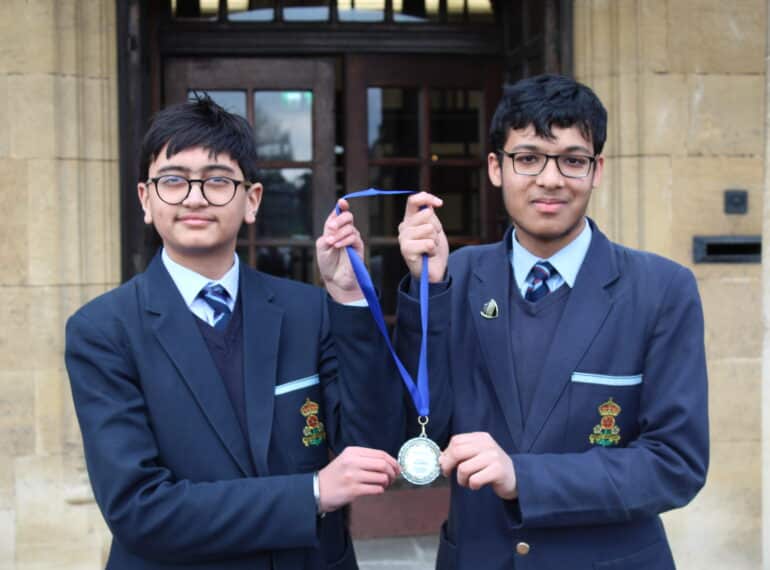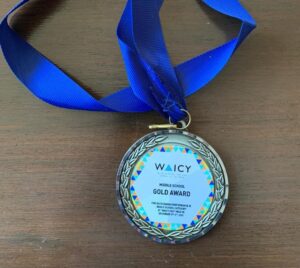
Two Year 9 boys have won an international artificial intelligence competition – the only UK winners across all age groups.
Paarth Aggarwal and Nittant Moudgil took gold in the middle school category of the fifth annual World Artificial Intelligence Competition for Youth (WAICY), beating teams from Australia, Greece, India and Indonesia.
They impressed judges with their project to help local councils mitigate the impact of fly-tipping, which combined an AI-powered app and a camera powered by a Raspberry Pi computer.
Headmaster Neil Enright said: “AI is likely to transform all our lives in the future and it is good to see QE pupils at the forefront of this revolution. My congratulations go to Nittant and Paarth both for their success and for the combination of intelligence, inventiveness and application that they demonstrated in developing and presenting this project.”
The pair were mentored by Paarth Aggarwal’s father, Saurabh. Mr Aggarwal works for Cognizant, the American multinational IT services and consulting company, as an Associate Director in its UK Artificial Intelligence & Analytics Advisory and Consulting team.
They were among more than 1,000 entrants in the competition, which attracted interest from young people in more than 30 countries around the world: for example, the winners of the high school category were from the USA and those of the elementary school category from the UAE.
 Paarth and Nittant won their medals and certificate for “outstanding performance”. Their project was designed to detect objects that are typically the subject of fly-tipping. They aimed to reduce the deleterious impact of fly-tipping on the environment and to help local authorities optimise their resources so that they can plan better and clean up more effectively.
Paarth and Nittant won their medals and certificate for “outstanding performance”. Their project was designed to detect objects that are typically the subject of fly-tipping. They aimed to reduce the deleterious impact of fly-tipping on the environment and to help local authorities optimise their resources so that they can plan better and clean up more effectively.
Nittant explained: “This was definitely a unique endeavour for me, as I haven’t taken part in an AI competition before. Paarth and I decided to approach the challenge by seeing problems that we could fix and innovate solutions for, and we had recently started noticing quite a lot of fly-tipping in our local area. We found it to be a widespread issue that affects many communities and has negative environmental and economic impacts, so we decided on making an app that uses an ML model to detect waste and report it to the local council. Winning the gold medal was a pleasant surprise, but we had worked hard on it, so it was a welcome one.”
WAICY is sponsored by a number of international commercial and educational organisations. The competition judges look first for the effective use of AI in entries and expect entrants to demonstrate a thorough understanding of what AI means. Competitors are expected to be able to demonstrate their understanding by answering questions about the technical aspects of their projects, including any coding that these involved.
After learning of his gold award, Paarth said: “This competition encouraged me to develop the critical thinking in me and helped to hone my skills in AI. It was an exhilarating opportunity to experience the competition on such a global platform.”
In fact, he said, taking part had helped him overcome his fear of getting involved in such large-scale competitions. “I would highly encourage everyone to participate, persevere and learn in all competitions, whether it is on a large or small scale.”
